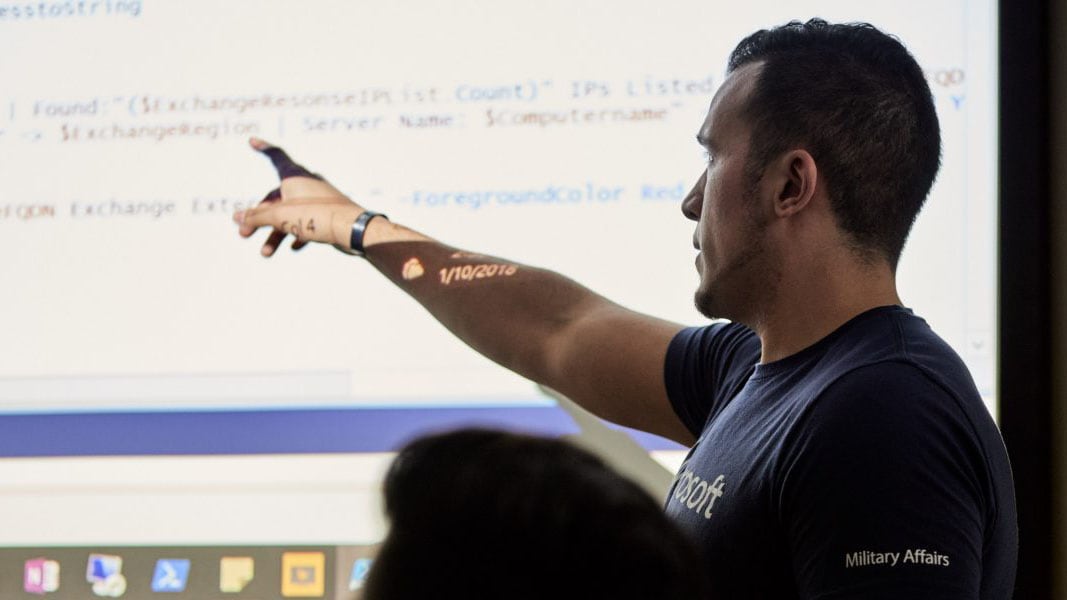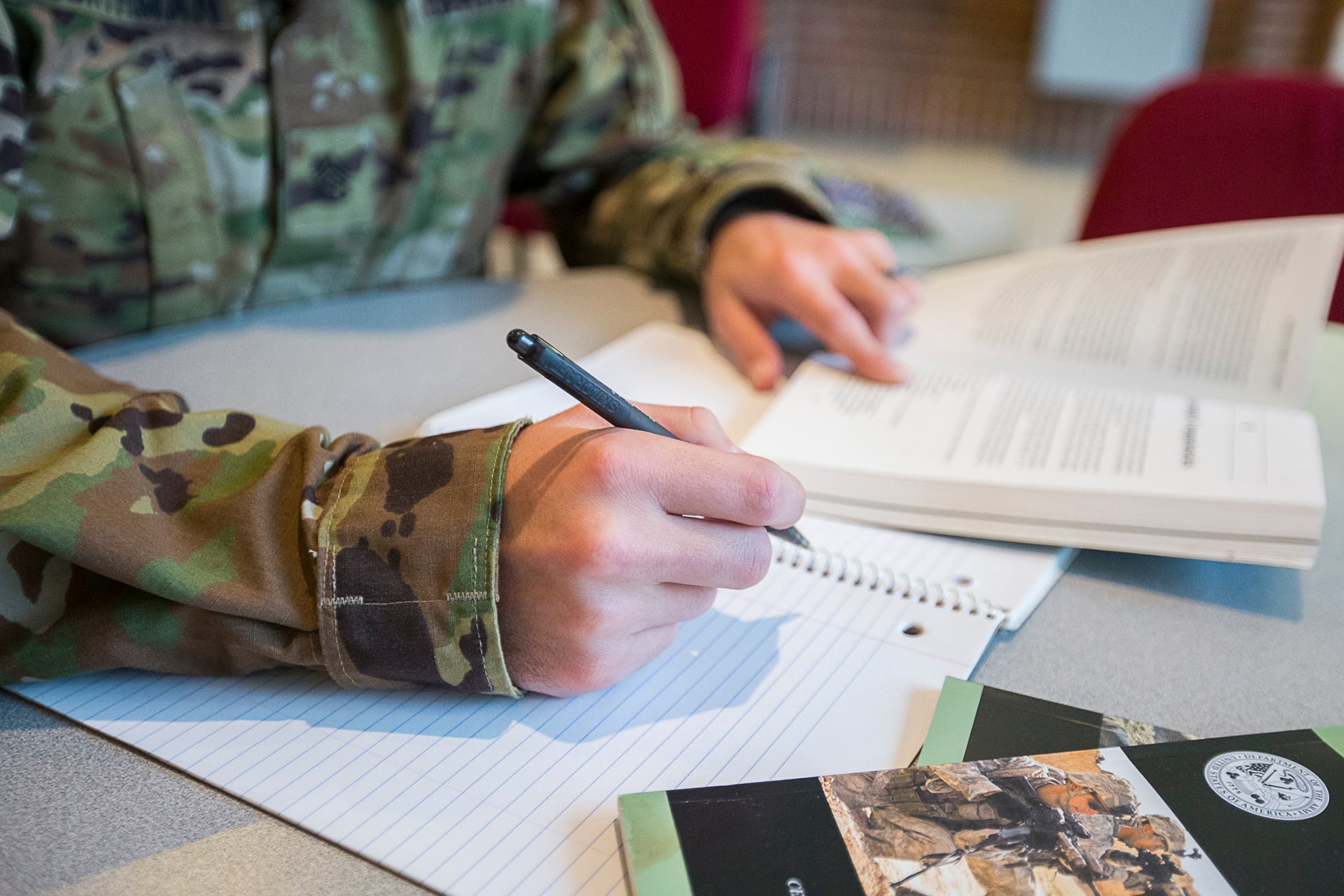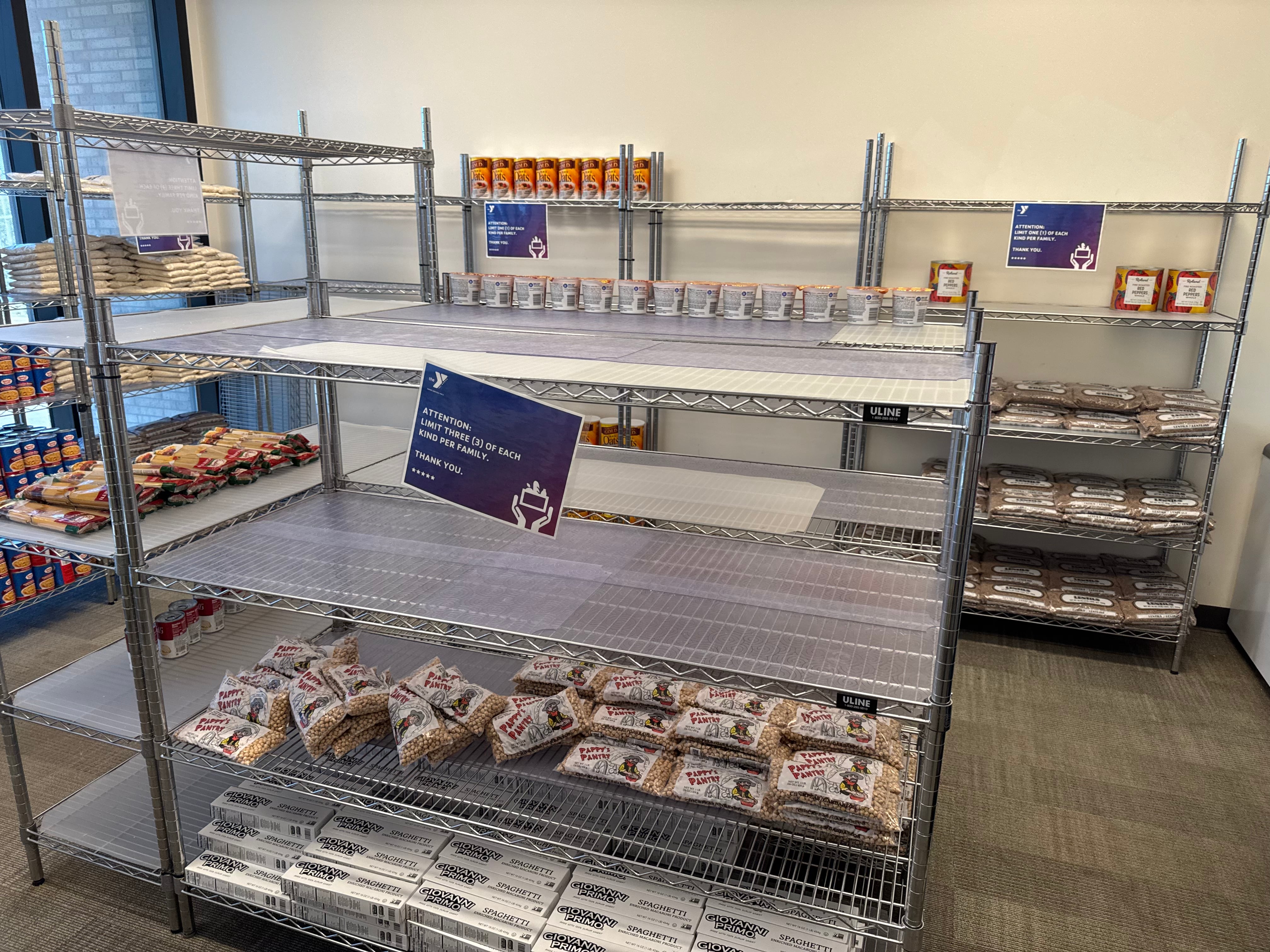Being in a job where you don’t feel valued or challenged can be disheartening. Unfortunately, it’s a position many former service members wind up in.
Sixty percent of veterans reported feeling that their skills and experiences were greater than the requirements of their job, according to a 2016 study by the Center for a New American Security.
When veterans felt undervalued or useless in their jobs, they were much less likely to stay. According to the same study, 18.7 percent of former enlisted personnel cited mismatches in skill or experience as the reason they left a job. These mismatches in skill are largely due to the fact that many employers don’t see the skills that military service provides.
Military service is so undervalued that many employers are more likely to hire a candidate with no experience rather than hire someone with military experience, said Joan Lynch, chief content and programming officer for employment-focused non-profit WorkingNation.
In an interview with Military Times, Lynch laid out steps that veterans can take to ensure that they find a job they love and that their skills are recognized in the workplace.
Plan for the future
As they transition out of the military, veterans should do their homework on career fields that are expected to experience growth in the future and avoid those expected to decline. To identify growing career fields that align with their interests, Lynch recommended that veterans use tools like LinkedIn Learning.
Once a veteran has decided on a career field to pursue, they should begin networking within that field, Lynch said. Finding veterans in the same field can be a great way to get connected. Knowing the area they want to work in can also help veterans narrow down their options for the many transition assistance and certification programs available to them.
It’s basic training for civilian life
The military is a way of being, with customs and culture all its own. All veterans have attended some sort of basic training to prepare them to work and behave acceptably in the military, and they should view the transition to civilian life in a similar way, Lynch said.
Civilian jobs come with ways of behaving and speaking and interacting with others that are entirely different than the norms of the military. To adapt to these changes in their environment, veterans should bring the same motivation and preparation that they put into basic training. Like basic training, it won’t always be easy or comfortable. Expect to make mistakes, and expect to learn from them.
Find a career, not just a job
When searching for a place to work, Lynch said it’s important for veterans to look at the search as finding a career. If job-seekers begin to look for places they would enjoy working long term and find fulfilment, they will be much more willing to make the necessary upfront investments in certifications and self-improvement to get the career they want.
That doesn’t mean veterans should be afraid to take a “lifeboat job” if they’re struggling financially, Lynch warned. Between the current pandemic and the amount of training and experience it may take to become qualified for a dream career, money can be tight. Regardless of their desired career, Lynch said, veterans shouldn’t hesitate to take a subpar job if it means providing for themselves and their families.
College isn’t a must
Despite what many veterans are told, college isn’t necessary to find a career in a desirable field. There are plenty of programs designed for veterans to attain the necessary training and certifications to work in a variety of fields like cybersecurity or health care.
Among the plethora of options available for veterans to gain relevant certifications and experience for civilian jobs, Lynch mentioned VetJobs/CASY, a job-seeking website for veterans with key partners including Microsoft, Boeing, and Amazon; NPower, a non-profit partnered with AT&T to provide training in the field of information technology; and Reboot Workshop, a three-week program focused on teaching veterans the skills necessary to adapt to the emotional, psychological, and social requirements of a civilian job.
Community college programs, existing DoD transition programs, and businesses with their own certification courses can also provide veterans with quick paths to the civilian workforce.
RELATED

Know what you bring to the table
One of the biggest reasons employers hire traditional college graduates over veterans, Lynch said, is that college graduates are typically very comfortable speaking about themselves and the strengths they will bring to the position. Because of the military’s focus on teamwork and unit accomplishments, many veterans don’t share this ability to comfortably put their strengths into words.
“Many veterans have a very hard time stepping in and having that kind of pride in themselves as opposed to pride in the military and pride in their unit,” said Lynch. But pride in themselves is exactly what many veterans need.
“Employers look at a degree, they don’t really understand or value the fact that veterans have had employment, that they have skills,” said Lynch. A veteran who can adequately describe to an employer the soft and hard skills they gained in the military is a veteran who stands out from the average college graduate with no work experience.
When employers recognize the value veterans bring to the table and hire them, their businesses become more successful, according to a study by the Call of Duty Endowment.
“It may take veterans a long time to transition from focusing on that we to the I, but that’s a valuable thing when you’re building a team or a company. Your veteran employee is looking at the overall company as a ‘we’, and ‘How do we succeed?’ rather than ‘How do I succeed?’” said Lynch.
Harm Venhuizen is an editorial intern at Military Times. He is studying political science and philosophy at Calvin University, where he's also in the Army ROTC program.










